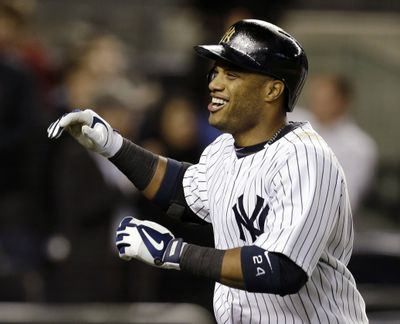Stone: Mariners going big and bold with Cano

SEATTLE – Robinson Cano is going to be a Mariner, and that’s a statement of such magnitude and improbability it must be allowed to sink in. Achieving a comfort level with the notion of Cano in Seattle might be accomplished by the time pitchers and catchers report.
They said it couldn’t be done. More to the point, I said it couldn’t be done, and obviously, that assessment was dead wrong. So let’s start by giving full credit to the Mariners for having the audacity to launch a pursuit of the top player on the free-agent market. And, more important, for having the cojones to pull it off.
To do so, they had to convince Cano that moving from New York City to lower Alaska wasn’t completely nuts. They had to satisfy his coterie of agents, ending with Jay-Z, who is rarely seen without a Yankees cap and was predisposed to keeping his first sports client in the Big Apple.
Finally, they had to grit their teeth, swallow hard, re-grit, and agree to a reported 10-year, $240 million contract that will become official when Cano passes his physical.
To do so required a stunning reversal in philosophy by Mariners CEO Howard Lincoln, who groused in December 2000 when Rangers owner Tom Hicks signed Alex Rodriguez away from the Mariners with a 10-year, $252 million deal, “Why did he sign with Texas? Obviously, some fool stepped out of the woodwork to pay him so much he couldn’t refuse it.”
When the Mariners followed with a 116-win season, Lincoln spoke often of the strength of cohesion in explaining how they had such great success after the departures of Randy Johnson, Ken Griffey Jr. and A-Rod.
“The more I see,” he told The Seattle Times that season, “the more I am convinced there isn’t a connection between superstars and winning.”
But people evolve, times change and so do priorities. The Mariners now will be paying two superstars, Cano and Felix Hernandez, a combined $46 million – more than their entire payroll ($44 million) in 1999, the last year of Griffey’s first Seattle stint.
Lincoln wisely ascertained that the current Mariners, more than anything, desperately needed to change the narrative. And signing Cano will be the ultimate game-changer – for better or worse.
The perception of the team changed the instant that news of the pending signing filtered out. That holds true on every level – by fans, by the media, within their clubhouse and around baseball. If that jolt required giving Cano $65 million more than the Yankees were prepared to do just to get his attention, well, they are paying as much for credibility as they are for Cano.
That’s an investment the Mariners felt they had to make, considering the distrust with which fans had come to view the team. The wisdom of making such a vast commitment, both in years and dollars, is still worthy of a spirited debate, however. The A-Rod Rangers remain a cautionary tale of the potential pitfalls of such massive contracts; in fact, history shows that teams end up regretting such boldness much more often than not (see Pujols, Albert, et al).
What’s clear is that the Mariners’ vaunted blueprint for a slow build to prominence via youth is a goner. In fact, some of those young players who were supposed to be cornerstones might be goners themselves: the likes of Nick Franklin and Dustin Ackley, who become instant trade bait with Cano’s signing. There are rumblings that the Mariners might be willing to include Taijuan Walker in a trade for David Price, which would be confirmation of a go-for-broke sea change.
The key to making this new master plan work is to not stop with Cano. That was the fatal mistake made by the Rangers, who never surrounded A-Rod with sufficient talent (Rodriguez’s personal foibles complicated matters further). But the Mariners have the resources, and apparently the desire, to make more impact moves this offseason. The hope is that Cano’s presence will help lure other free agents by convincing them that Seattle isn’t a vast wasteland after all.
It’s a gamble, but a valiant one. With each passing year, the 31-year-old Cano will move away from his prime, and those dollars will become increasingly daunting. Teams that try to spend their way out of trouble and into prominence often find the road much bumpier than anticipated.
But the old Mariners way clearly wasn’t working. I salute the Mariners for going big and bold. They’ve won the winter. Let’s see if the summer is next.